The Never-Ending Fire: The Real Tale of the Burning City in Pennsylvania
A century ago, Centralia was a busy small town in Pennsylvania. It had shops, residents, and a booming mining business. Today, Centralia streets have been abandoned. Most buildings are gone, and smoke clouds the air where a prosperous town once stood. The cause: a mine fire that has burned for over 50 years and is predicted to burn even longer.
It looked like a minor issue at the time, but little did Centralia’s residents know how much this fire would change their lives. How did it all start?
The Town Where It All Began
Coal fires are nothing new, but it is Centralia’s legacy today. The town was founded in 1866 in Columbia County, Pennsylvania. It was named after the Centralia coal company and soon became a popular mining center.
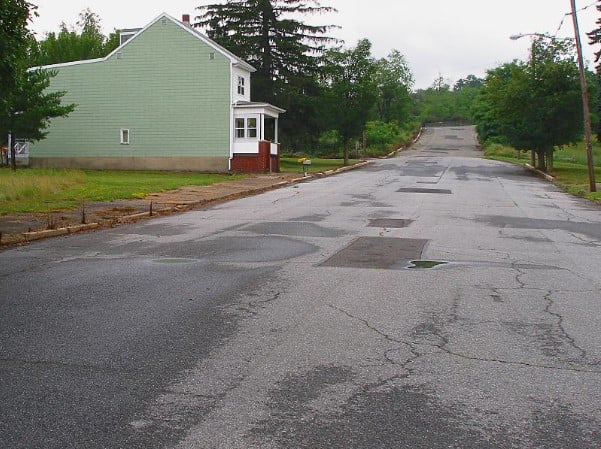
Source: Wikimedia Commons
Centralia is home to a rich deposit of anthracite coal, and the coal industry soon became the backbone of the town’s economy. The coal industry grew quickly in the 19th and early 20th centuries. This was until disaster struck, and everything changed.
A Booming Mining Industry
Mining defined life for most Centralia residents, from the rough and tumble residents to the seedier side of town. In the 1860s, the town was known to be home to members of the Molly Maguires, a secret society that started in Ireland and slowly made its way to the American coal mines.
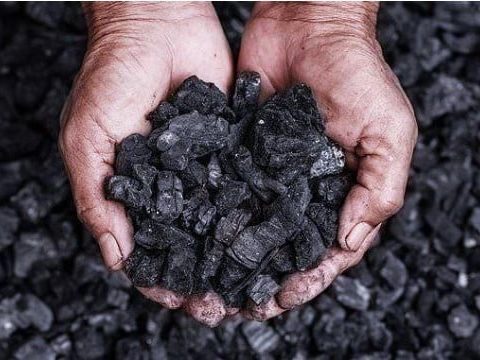
Source: Pinterest
Most times, the coal was extracted using the room and pillar method. This required leaving pillars of coal to support the mine roof, and when it eventually collapsed, the roof would cave in.
The Declining Coal Industry
In the mid-20th century, the booming coal industry began to decline slowly. There was less demand for coal, and most Centralia mines began to close. By the 1960s, only a few mines were left, which plunged the town’s economy into decline.
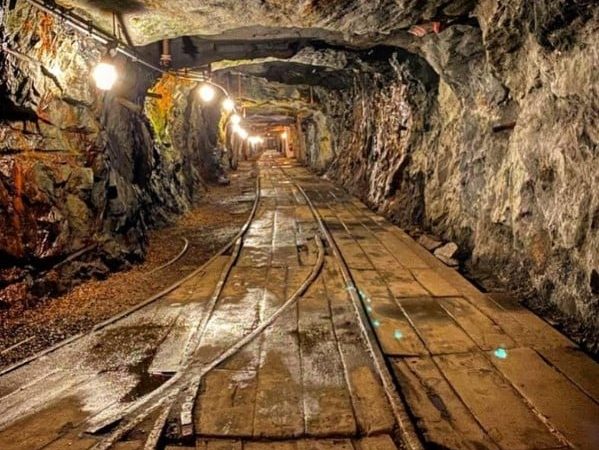
Source: Pinterest
Most of the residents began to find new ways to make a living. However, Centralia was a close-knit community determined to support their town to the end. They would never guess how much damage the coal had done.
The Landfill That Started It All
Interestingly, Centralia’s dependence on mining wasn’t what killed the town. Although the stock market crash and Great Depression affected Centralia in many ways, it didn’t kill their spirit. It took a great tragedy to do that.
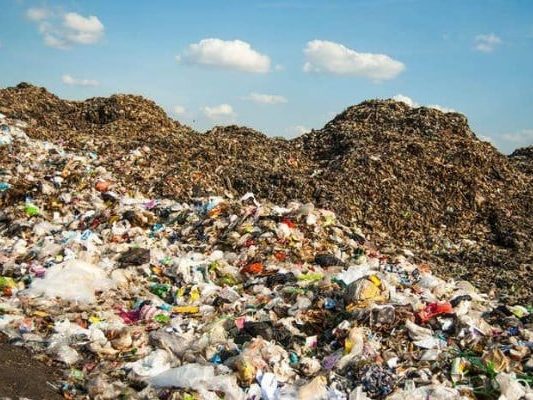
Source: Pinterest
It’s not clear how the fire tragedy started. However, it all seems to have started with the town’s landfill. The city council converted an abandoned mine pit into a garbage dump in 1962; they thought it was harmless until they discovered what was underneath.
Taking the Trash Out
Trash was a top issue in Centralia, and the city council wanted to eliminate the issue of unwanted odors and rats that came with it. In May of 1962, Centralia’s town council met to discuss their clogged landfill and the possibility of a new one. Earlier in the year, the town had built a 50-foot-deep pit to deal with the issue of illegal dumping.
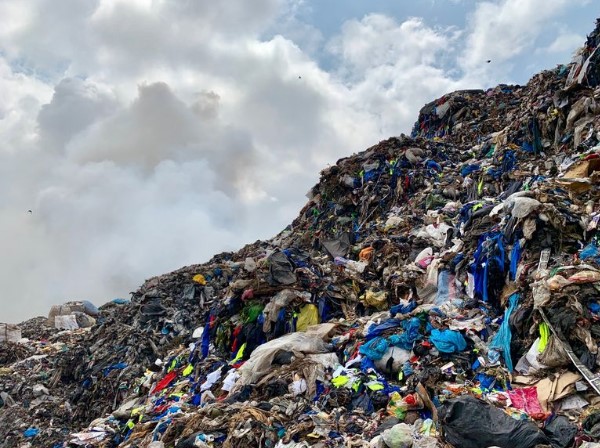
Source: Pinterest
However, this landfill quickly became full and needed clearing again as the town’s annual Memorial Day celebration drew close. Of course, they could dig a new one, but the trash couldn’t be left just sitting there; they needed to get rid of it.
Stoking the Fire
As Centralia got ready for the Memorial Day Festivities, it decided that burning it all was the easiest and fastest way to clean up the landfill in time for the celebration. To handle this, the council hired five volunteer firefighters.
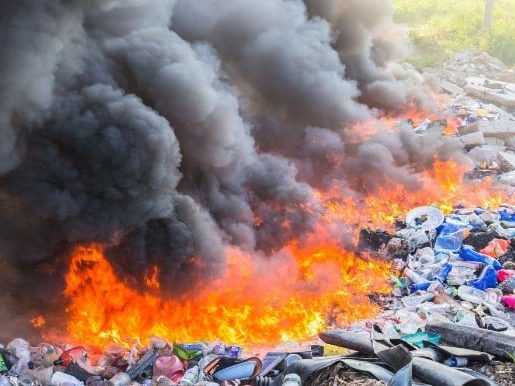
Source: Pinterest
The landfill was located in an abandoned strip mine pit, and the firefighters got to work clearing the dump. They set the trash on fire and watched as it burned. There was no way they could tell what their actions would eventually cause.
The Fire Ignites
Although there are many theories about how the fire started, this dump fire seemed to be the match that lit a much larger mine fire beneath the town. The fire department lined the pit with an incombustible material hoping it would contain the fire, but they had no idea what would come.
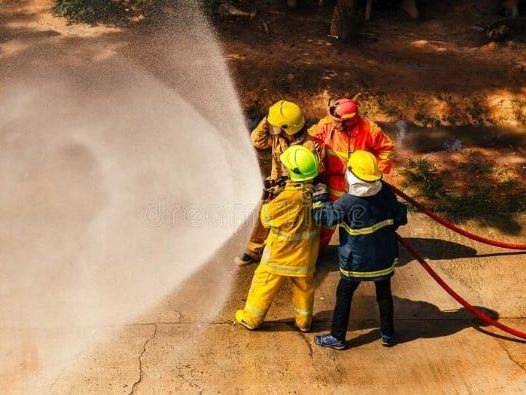
Source: Pinterest
When the trash had burned completely, they doused the remaining embers with water and walked away. It was seemingly the end, and they were off, thinking of the festivities that drew close. No one predicted what would happen next.
A Raging Fire
Just two days after the landfill fire, residents began to see flames. Was there another landfill being burned? They were clueless about what had happened. The fires were put out and chalked up to a single event. But the fire was far from over.
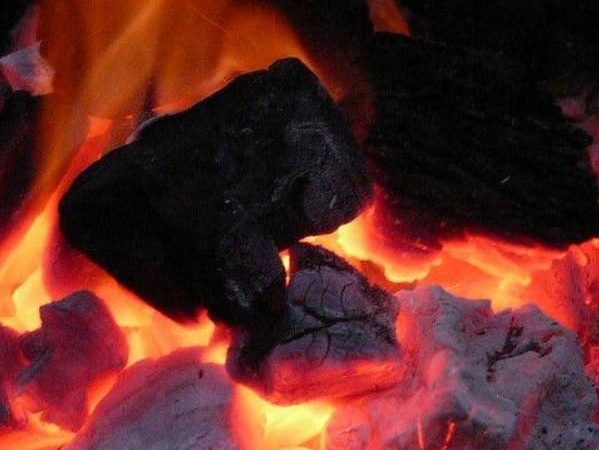
Source: Pinterest
A week later, on June 4th, another fire began, and Centralia firefighters were baffled as to what was causing the recurring fire. They used bulldozers and rakes to stir the remains of the landfill garbage. What did they find?
The Labyrinth That Started It All
At the bottom of Centralia’s landfill, the firefighters found a hole 15 feet wide and several feet deep. The trash had concealed this gap. Therefore, the firefighters had not filled it with fire-retardant material. They investigated further to find out where the strange hole led and were shocked at the answer.
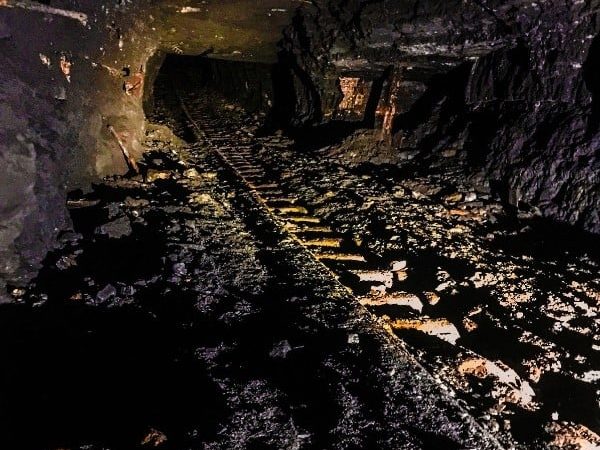
Source: Pinterest
The hole provided a direct pathway to the labyrinth of old coal mines over which Centralia was built. Did this mean the entire town was in danger? They were going to find out in the coming days.
The Beginning of the End
Soon, most residents started complaining of foul odors entering their businesses and homes. They also noticed the wisps of smoke coming from the ground around the landfill. The town council was worried; what could they do?
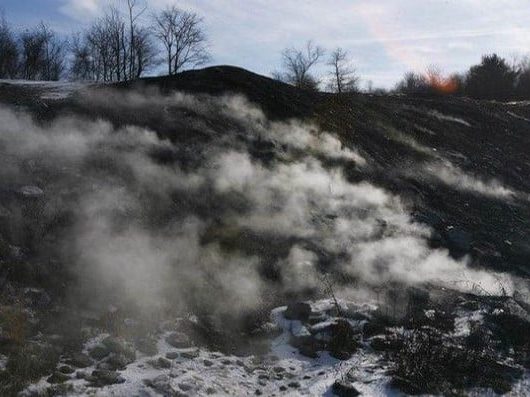
Source: Pinterest
They brought in a mine inspector to inspect the smoke and other signs discovered by residents. The inspector determined the landfill’s carbon monoxide level indicated a mine fire. The town immediately sent a letter to the Lehigh Valley Coal Company, informing them of the fire.
It Spread Like Wild Fire
It didn’t take a while for the fire to ignite again. It raged in a coal seam beneath Centralia and spread to mine tunnels beneath the streets and closed mines. One of the reasons the fire spread was the many underground mines in the area.
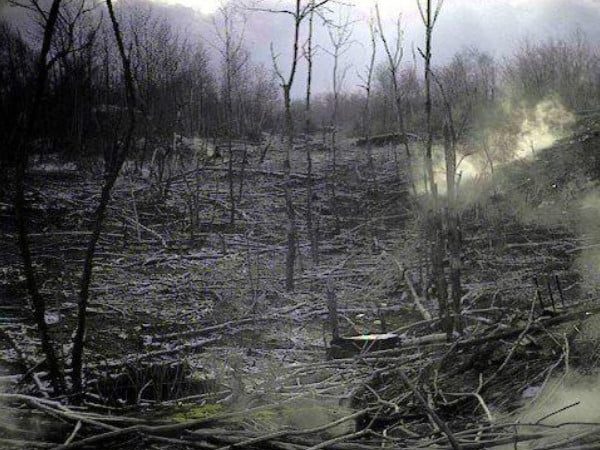
Source: Pinterest
The council knew many mine tunnels were fueling the fire. However, there was little they could do. It would be expensive to determine which stoked the fire and likely impossible to close off every single one.
Fighting the Fire
The firefighters tried to extinguish the fire, but it was soon clear that they could do little about it. Their first attempt was to pour water tanks into the mine to douse the flame. However, the result was far from what they expected.
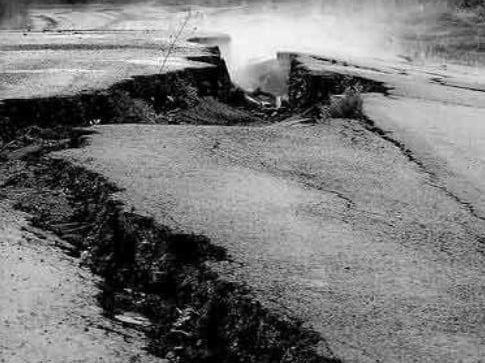
Source: Pinterest
The water reacted with the coal and resulted in toxic gasses. Although there were several more attempts, it was beginning to look like a lost cause, and they needed to bring in more professionals.
Putting Out the Fire
All attempts to stop the Centralia fire from spreading were unsuccessful. The first response by the authorities was to excavate beneath Centralia. The idea was to dig out the trenches and expose the flame so that it could go out.
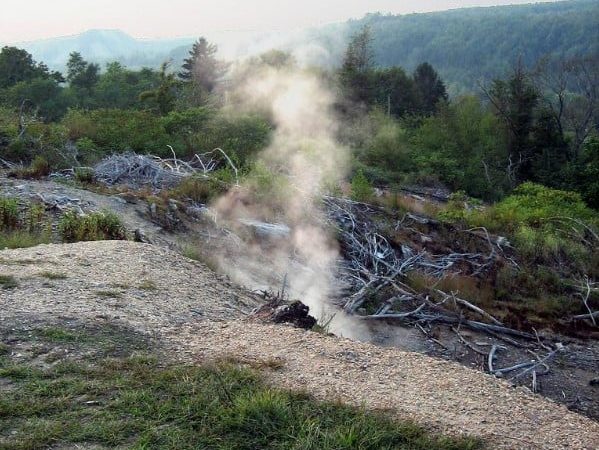
Source: Wikimedia Commons
However, the architects of this plan underestimated the amount of earth that would need excavating. It was no surprise when they ran out of funding along the way.
Trials and Error
The town refused to give up, determined to save their home from the strange fire. The next plan was to flush the fire using water and crushed rocks. However, the temperature was uncommonly low at the time, and this caused the water lines to freeze.
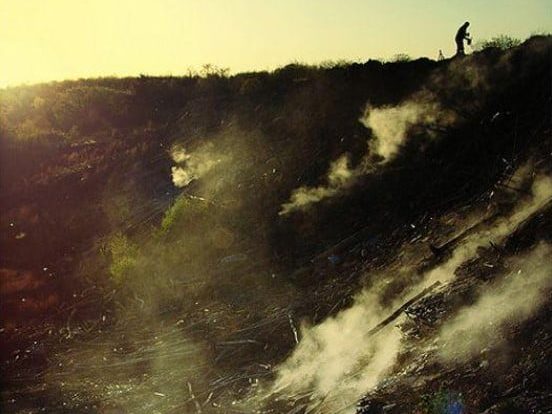
Source: Pinterest
The company also worried they couldn’t make enough mixture to fill the warren. So, they decided to only fill it halfway. This left enough room for the flames to move, and soon, they ran out of funding.
The Resilient Residents
While most would skip town at the sight of smoke, the residents of Centralia were determined to save their town. They continued their daily lives, living above the hot smoking ground. The town still had about 1000 residents, and they began to learn to live with it.
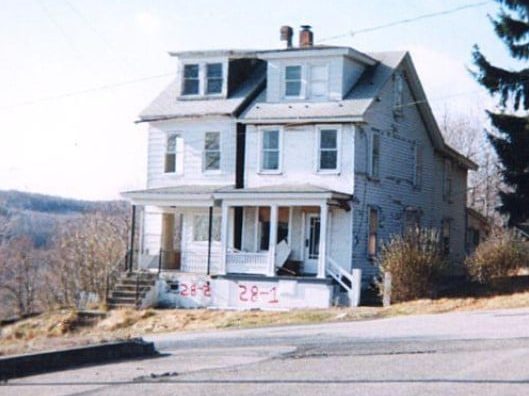
Source: Pinterest
Of course, they were no strangers to mine fires and were hopeful that, just like the rest, this new fire would eventually burn out. It was soon clear that, unlike the others, this one wouldn’t.
A Crumbling Town
Although the residents of Centralia stood strong, their town didn’t. The ground became unstable as the fire raged underneath, and its effect on the town was soon obvious. It wasn’t long before the roads and buildings in Centralia began to crack and crumble.
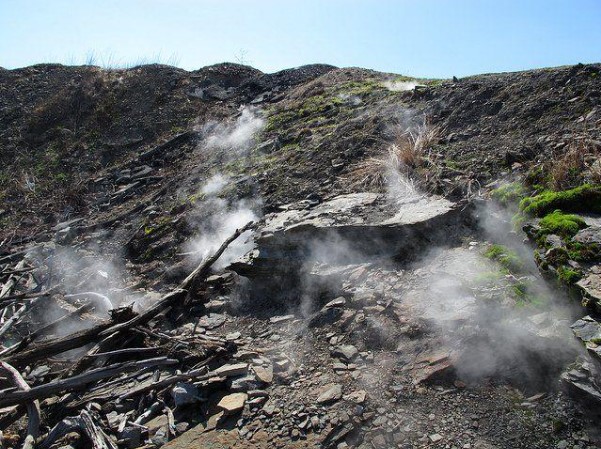
Source: Pinterest
The crumbling ground wasn’t the only danger the residents of Centralia had to deal with. The fire also gave rise to poisonous gases, making the area unsafe.
A Difficult Time to Breath
Some toxic gases released by fire include sulfur dioxide and carbon monoxide. These gases are harmful to humans and could result in respiratory problems, nausea, and headaches. The areas surrounding the town were declared hazardous, and people could no longer enter.
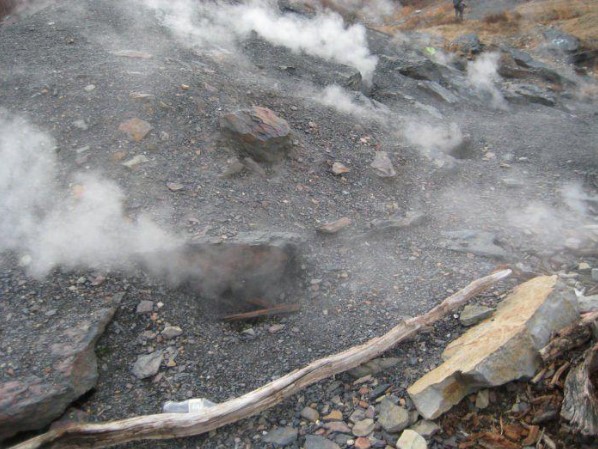
Source: Pinterest
It was even more dangerous for residents as it resulted in significant health risks to them. Soon, many residents developed respiratory problems, and headaches became the order of the day.
Breaking Through the Surface
For a long while, the fire was underneath, and the residents only had to deal with its effects. However, soon, the fire began to break to the surface causing small fires and steam vents.
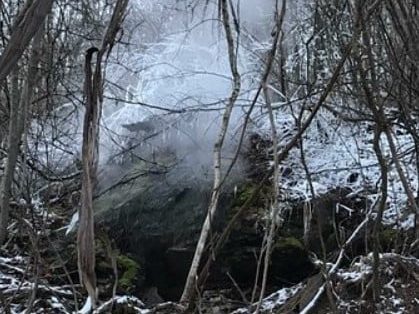
Source: Pinterest
Since this fire could start without warning and break out anywhere, it became particularly dangerous to everyone in the area.
No Rest for the Dead
The raging fire ensured all residents, including the dead, couldn’t rest peacefully. The subsidence caused by the fire created many sinkholes in the town. These sinkholes could appear suddenly without warning and were usually several feet deep.
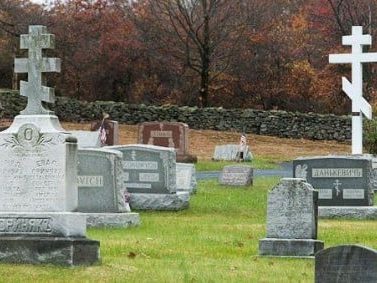
Source: Pinterest
Graves in two cemeteries dropped into the fire raging below them. The living was not spared either, as many young and old residents reportedly fell into sudden sinkholes.
The Decline of Centralia
The fire and the resulting abandonment of Centralia by the surrounding towns significantly impacted its economy. Businesses and services that once thrived faded slowly, soon becoming a ghost town.
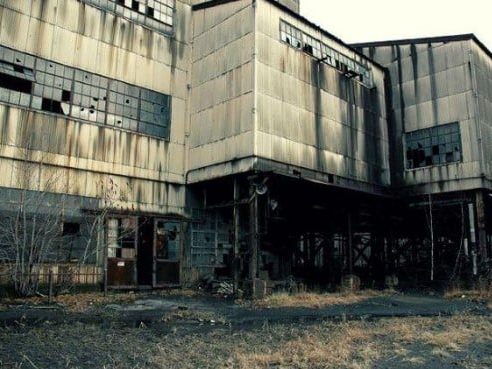
Source: Pinterest
Property value plummeted with businesses closing down and the town’s economy collapsing. It became clear to residents that the town might never recover from the fire. Most residents began to consider the only choice left: evacuation.
Leaving Home
By the 1970s, the fire had raged on for too long, and its effect on the town had become severe. Most residents began to experience health issues due to the toxic gases, and the ground was unstable for construction.
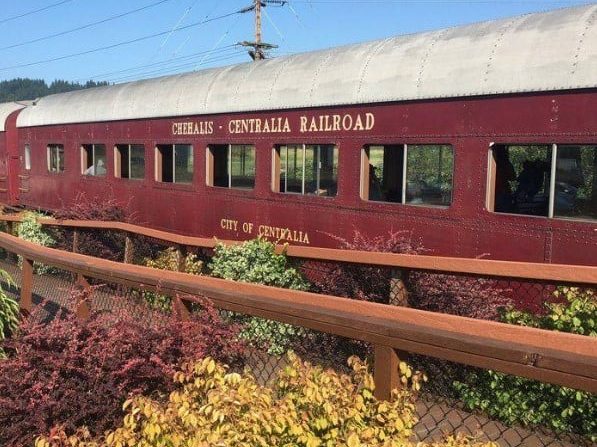
Source: Pinterest
By 1981, the federal government declared the town a disaster area, and most residents were forced to evacuate. Many residents chose to stay behind until a great incident occurred that changed their minds.
The Boy That Changed Everything
Despite the evacuation and the rising dangers, many residents chose to remain in Centralia. However, that changed in 1992 after an almost-tragic incident.
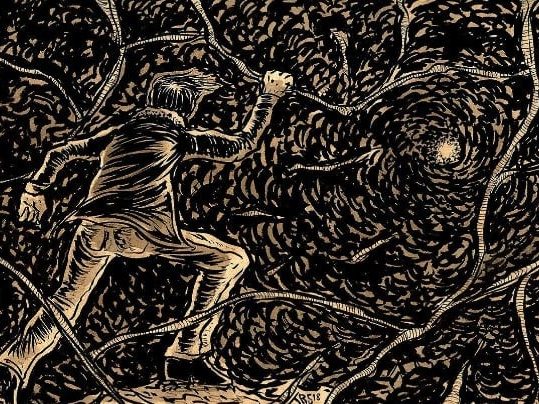
Source: Pinterest
A 12-year-old boy had fallen into the sinkhole that opened due to the fire. Luckily, he grabbed a protruding stick on his way down and held on for dear life till his brother pulled him up. This incident was an eye-opener for most residents and led to a second wave of evacuation.
A Trade for Your Life
Eventually, the government knew they needed the incentive to make the residents leave. Therefore, they offered buyouts to the remaining residents of Centralia. The U.S. Congress allocated over $42 million for relocation efforts.

Source: Pinterest
More than 1000 residents took the offer, and soon, the town was abandoned. A few die-hard residents refused the offer, choosing to live and die in the town they called home.
A Flurry of Legal Battles
Not everyone wanted to leave, so they chose to fight for their hometown. Over the years, the residents and the government have had many legal battles. With Pennsylvania invoking eminent domain, residents became squatters in their own homes.

Source: Pinterest
Even so, the town still thrived. They had a council and a mayor, ensuring they paid bills on time. Over the next decade, the residents continued to fight hard to stay in their homes despite the dangers of the fire.
A Favorable Verdict for All
By 2013, only seven residents remained in the town, and the legal battles continued. Eventually, the jury gave a verdict that was favorable to all. The residents received over $300,000 for their homes and gained the right to stay there until they died.
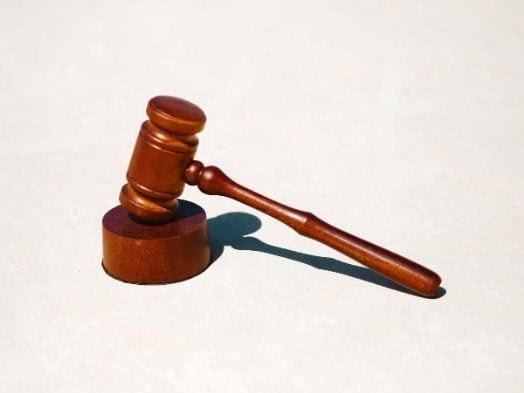
Source: CourtInnovate/ Twitter
However, they were forbidden from passing down the property or selling it. Once they left or died, they would forfeit the property to the state, and their home would be demolished. It was a win for both sides.
The Allure of a Burning Town
Despite the dangers, the story of a burning town drew many people in. Tourists came from all over the world to see the town that had been on fire for over 50 years. People wanted to see the plumes of toxic smoke rising from the earth and the surrounding forest creeping in on its once-busy streets.
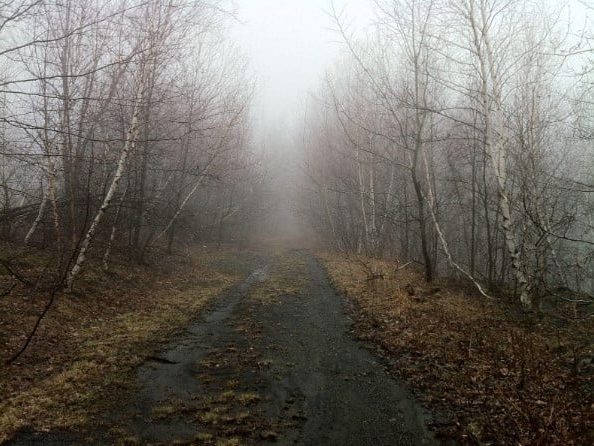
Source: Pinterest
Centralia earned the name ‘the ghost town’ as it was now full of trees rather than people. The residents who stayed behind didn’t mind; they were happy to tell the tourists how it all began.
Sparks of Color in an Ashy Town
As the fire raged on, the beautiful Assumption of the Blessed Virgin Mary Ukrainian Greek-Catholic Church sat on a hill above the town, serving as a spark of color. The church continued to hold weekly services as the only church still standing in the once-bustling town.
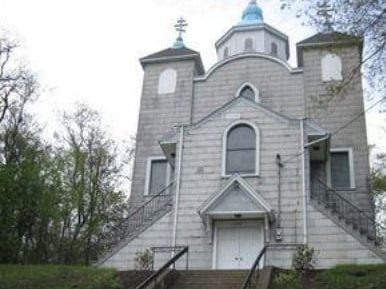
Source: Pinterest
The Veteran’s Memorial still stood with a chain-link fence around the place where its memorial statue once stood. Although a time capsule was once buried in the park, they removed this in 2014.
From Coal to Graffiti
One of the town’s primary highlights is the Graffiti Highway. This beautiful road was a section of Route 61 that ran from Ashland to Centralia. However, it’s now redundant due to frequent repairs.
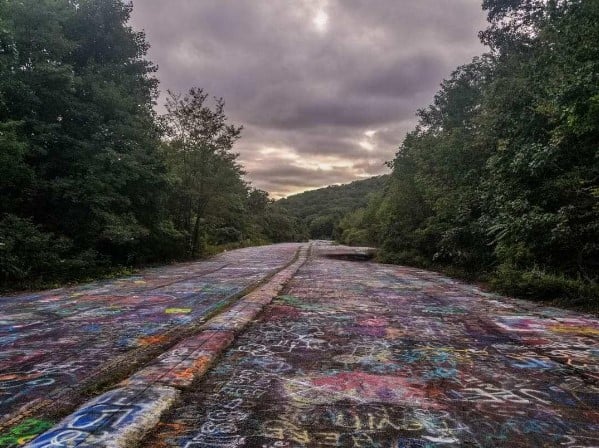
Source: Pinterest
Although some of the graffiti is art and insightful sayings, a high percentage was simply vulgar.
Inspired by the Eternal Flame
The Eternal flame of Centralia served as an inspiration to many. A documentary was created about it that explored the town that was and the impact of the fire. It featured interviews with former residents and shared haunting images of the abandoned town.
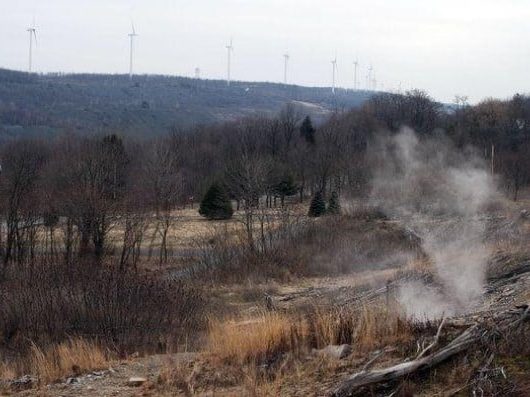
Source: Pinterest
Centralia also inspired the video game and movie series Silent Hill. The eerie atmosphere of the town and the abandoned buildings inspired the movie and the game.
The Legacy of Centralia
Although the future of Centralia is uncertain, there are speculations that the fire could go on for another 250 years. Less than five people live in Centralia today, and the town is a haunting reminder of what was once a thriving town.
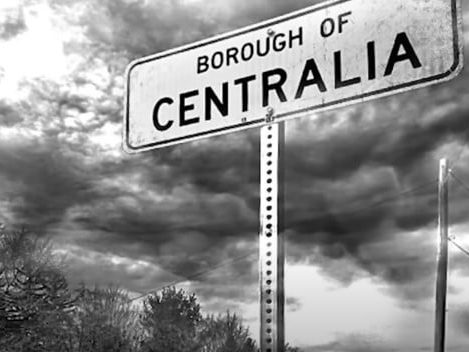
Source: Mystery Archives/ YouTube
Centralia has become a town where superstitions, legends, and tall tales abound. The only certain thing is that Centralia burns on and will continue to burn. However, many people hope the town will rise from the ashes and become a bustling place again.
